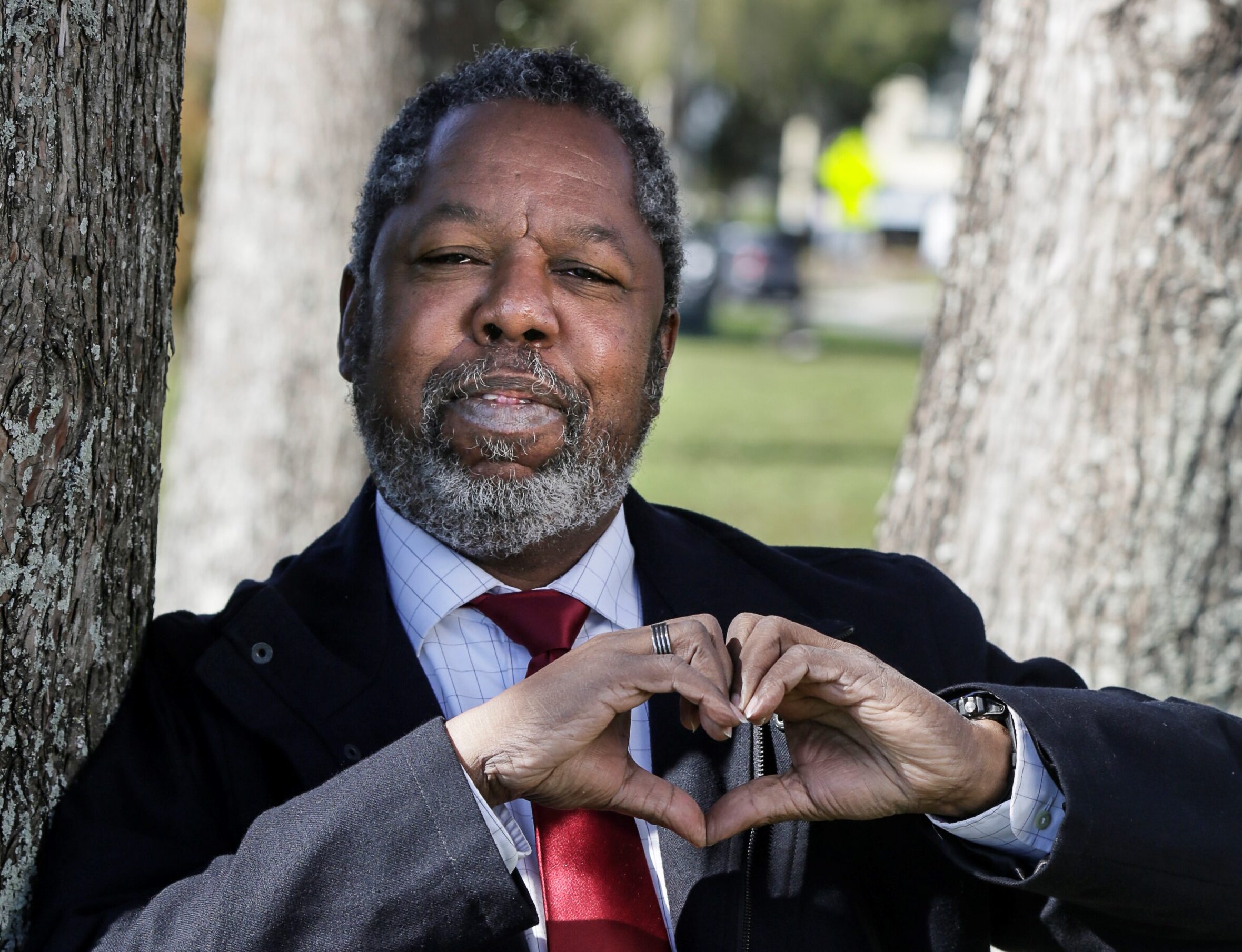Lakeland Man’s Journey Through Sickness and Transplant to Second Chance
by MATT NORMAN, RN
Heart health is something that we don’t often think about. Especially when we’re young. For Lakeland resident DeWayne Wilson, this all changed in 1999 when he received a life-changing diagnosis. That moment started him on a journey towards something bigger than most people will ever experience.
In 1999, Wilson was a 37-year-old man with no known medical problems and didn’t think much about his health. If asked, he would have said he was in excellent health. What he hadn’t noticed then, was that he had gradually begun to have a little trouble breathing. Nothing major, it was just that tasks that would normally have been easy for him became a little more difficult. He also noticed that he became tired more easily. This continued to build until he finally decided to go to the doctor.
When Wilson visited that Urgent Care doctor, all he knew was he didn’t feel well. He was having a little shortness of breath and had a cough that wouldn’t stop. Thinking it was just a cold, he tried all of the usual, over the counter remedies with very little relief. Prior to going to the doctor, he had become convinced that he had bronchitis. His shortness of breath and cough certainly seem to point in that direction. Not to mention that he was still a young man and, as such, it couldn’t possibly be anything worse than that. With this in mind, Wilson went to the doctor. After the usual examinations and tests, including a chest X-ray, the doctor came to Wilson with a diagnosis that knocked him off his feet. The doctor told Wilson that he had cardiomyopathy.
“When the doctor said what he thought it was, I thought ‘You must be kidding,’” Wilson says. After all, he was a young man and had no previous medical problems. The doctor was not kidding.
“The doctor told me to go home and get into bed,” Wilson recalls. “And other than to get up to feed myself or go to the bathroom, don’t do anything else. ‘Your heart is about to stop, and if it stops there’s nothing we can do.’ ” That was on a Friday.
“I just didn’t feel that sick, but the shortness of breath was severe,” he says, explaining that if somebody asked him a question he could answer. But if they asked him a series of questions, he would start coughing and couldn’t catch his breath.
The following Monday, he had an appointment with a cardiologist and was put through a battery of tests.
The test results not only verified the diagnosis, but also revealed the extent to which his heart was not working. It showed that his heart function was 16%.
Wilson and his doctors kept tabs on his heart function with annual echocardiograms.
In spring 2009, his numbers started to decline. Later that year, a couple of days before Thanksgiving, his cardiologist suggested he get a defibrillator implanted. He underwent surgery early that December at Lakeland Regional to get the defibrillator.
Despite the addition of the defibrillator, the numbers measuring how efficiently his heart was working were still falling.
In May 2011, he was referred to USF Health at Tampa General Hospital to see if there was a viable alternative to a transplant.
Doctors explained that they couldn’t replace his valves because his hearty was enlarged and surgery would not work. The surgery itself, they said, would almost certainly be fatal.
“I asked the doctor worst- and best-case scenarios if I didn’t get a transplant,” he remembers.
“He said the best-case scenario would be 2 to 3 years. The worst would be six months.”
When asked what he thought at that moment? “You just have to trust that it’s going to be OK.”
The following year, Wilson learned just how much more there was to the surgery than the surgery itself. Patients have to meet with a financial advisor, a psychologist, a social worker, an infectious disease specialist and more to make sure he would be able to adequately care for the heart. In June 2012, Wilson got his new lease on life.
Wilson clearly remembers his first conscious moment with his new heart.
“When they woke me up, I immediately felt more alert,” he remembers. “When they take the tube out of your airway, they say, ‘Take a deep breath.’ ”
And now, he could.
His journey was far from over, but he was already feeling better than he had in years.
“I had a very positive outcome.”
When asked about life after the transplant, Wilson said his biggest struggles are related to the medicines he takes. These powerful drugs come with certain side effects, as we would expect. Because of this, he has many good days but still has occasional difficult days. He also has to be much more careful when traveling or around groups of people. The same medicines that keep his body from rejecting his new heart also make his immune system less able to fight off things that would be minor for most of us. Still, he has learned what he needs to do to keep himself safe, such as good hand hygiene and, when necessary, wearing a mask.
Many people can’t even imagine how they would have reacted had they been in Wilson’s shoes at any point in his journey.
Wilson gives this advice, “Have a regular doctor and get regular checkups.” While doctor visits have become routine for him now, he admits he didn’t go as often as he should have prior to this. In fact, he confesses that by the time he finally went, he had gotten quite sick.
Cardiac disease can sneak up on people. While nothing can ensure you never have to deal with cardiac disease, seeing your doctor regularly is a major part of helping to ensure your heart stays healthy.
